ORISE Future of Science Awards
The annual ORISE Future of Science Awards celebrate excellence performed by ORISE participants in the areas of scientific achievement, professional growth, project contributions, and leadership.
Eligibility
The individual must have been actively participating in an ORISE program. ORISE participants who are minors, high school students, faculty, or established scientists are not eligible for these awards.
Participant prizes
A prize of $1,000 will be awarded to the selected nominee in each of the three categories:
- Undergraduate student and post-baccalaureate participants;
- Graduate student and post-master's participants; and
- Postdoctoral participants.
Mentor award
We are honored to offer an award which allows ORISE participants to recognize their exceptional mentors.
In addition, awardees will receive a personalized plaque and will be featured in future ORISE podcasts, social media, and feature articles. For more information, contact ExperienceORISE@orau.org.
2025 Winners
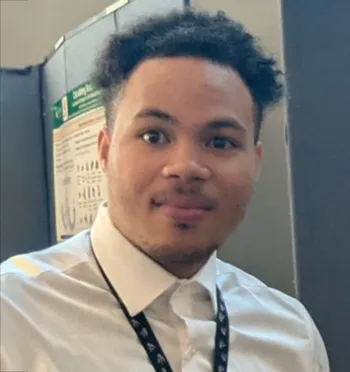
Janou Milligan earned a Bachelor of Science degree in computer science from Georgia State University, gaining experience in software engineering, computer information systems, networking and cybersecurity, with a primary focus on artificial intelligence and machine learning. From August 2024 to December 2024, he participated in the Science Undergraduate Laboratory Internships (SULI) program at Oak Ridge National Laboratory (ORNL), followed by the Education Collaboration (ECO) program from December 2024 to August 2025. With the Environmental Risk and Energy Analysis group, Janou developed exposure models, utilized databases and programmed routines that support environmental risk assessment information systems sponsored by the U.S. Department of Energy. In parallel, he collaborated with ORNL’s Advanced Plant Phenotyping Laboratory (APPL) to design deep learning models for image, multivariate, and time-series data analysis, enhancing APPL’s phenotyping capabilities in support of the Center for Bioenergy Innovation (CBI). His contributions have led to in-development publications, including a technical memorandum and a research paper, and earned recognition through a 2025 Biosciences Division Distinguished Achievement Award. Going forward, Janou will begin a Ph.D. in data science and engineering at the University of Tennessee, Knoxville, under the Bredesen Center, continuing to work with APPL and CBI while exploring innovative applications of AI in plant science and other biosciences.
Nominated by Fred Dolislager, Oak Ridge National Laboratory
WATCH: Statement from Future of Science Award winner Janou Milligan
WATCH: Statement from nominator Fred Dolislager
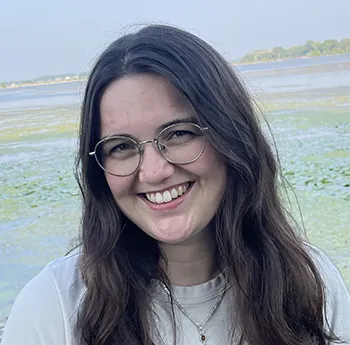
Margaret Costello is pursuing a Ph.D. while participating as an ORISE graduate fellow with the U.S. Department of Agriculture (USDA) Dairy Forage Research Center, mentored by Hilario Mantovani, Ph.D., and Jennifer McClure, Ph.D. Her doctoral research focuses on the dairy cow gastrointestinal microbiome, particularly the development of scalable, non-invasive sampling and processing techniques. She is optimizing methods such as buccal swabs and DNA preservation approaches to provide a cost-effective, less labor-intensive alternative to traditional rumen sampling. By advancing unbiased and safe DNA extraction protocols, her goal is to generate microbial data that can be more readily integrated into animal breeding and management strategies. Her research also incorporates long-read metagenomic sequencing to characterize the functional potential of microbial populations, with a special focus on traits connected to sustainability, including reducing methane emissions and improving feed efficiency. Through this interdisciplinary approach, Margaret seeks to bridge microbiome research with practical applications that benefit both producers and the environment. Outside of her research, Margaret enjoys spending time with her beagle and crocheting.
Nominated by Jennifer McClure, Ph.D., U.S. Department of Agriculture
WATCH: Statement from Future of Science Award winner Margaret Costello
WATCH: Statement from nominator Jennifer McClure
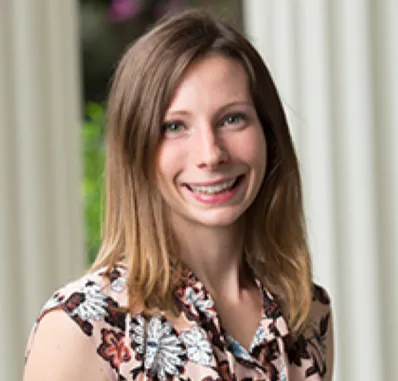
Kerri Miazgowicz, Ph.D., recently completed an ORISE fellowship with the Virology Team of the Arborial Disease Branch of the Division of Vector-borne Diseases, located within the National Center for Emerging and Zoonotic Infectious Diseases (NCEZID) at the Centers for Disease Control and Prevention (CDC). Her research is focused on developing novel diagnostic reagents and assays for the detection of arboviral infections. This includes the generation and implementation of the recombinant vesicular stomatitis virus (rVSV) system in-house to produce chimeric viruses to develop safer and faster neutralization tests, which require the use of live infectious viruses. In parallel, her research also involves the generation of hybridoma cells and recombinant mammalian cells to produce novel antibodies used to detect emerging and reemerging arboviruses in diagnostic assays. Kerri will be starting a new fellowship opportunity with the Association of Public Health Laboratories hosted at the North Carolina State Public Health Lab.
Nominated by Amanda Calvert, Ph.D., Centers for Disease Control and Prevention
WATCH: Statement from Future of Science Award winner Kerri Miazgowicz
WATCH: Statement from nominator Amanda Calvert
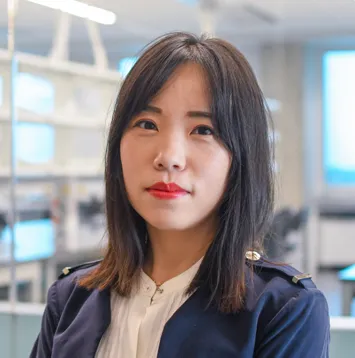
Shuang Cui, Ph.D., is an assistant professor and Eugene McDermott distinguished fellow in the Mechanical Engineering Department at the University of Texas at Dallas (UT Dallas). She also holds a joint faculty appointment at the National Renewable Energy Laboratory (NREL). Cui received her Ph.D. in mechanical engineering from the University of California, San Diego. Her research focuses on developing advanced materials and systems for energy storage, water harvesting and thermoregulation. Cui has received multiple prestigious honors, including the Recognition of Outstanding Achievement in Research Award from UT Dallas, the President’s Award for Exceptional Performance from NREL, and Best Reviewer Award from American Society of Thermal and Fluids Engineers. She has been featured by the U.S. Department of Energy (DOE)’s Women @ Energy: STEM Rising and was an invited participant at the Asian Deans’ Forum – The Rising Stars Women in Engineering Workshop in Korea (2019) as well as the 2019 U.S. C3E Women in Clean Energy Symposium. She actively mentors students through the DOE Innovation in Buildings (IBUILD) Program, DOE Science Undergraduate Laboratory Internships (SULI) Program and DOE Jump into STEM competition.
Nominated by Bernadette Magalindan, U.S. Department of Energy
WATCH: Statement from Future of Science Award winner Shuang Cui
WATCH: Statement from nominator Bernadette Magalindan
2024 Winners
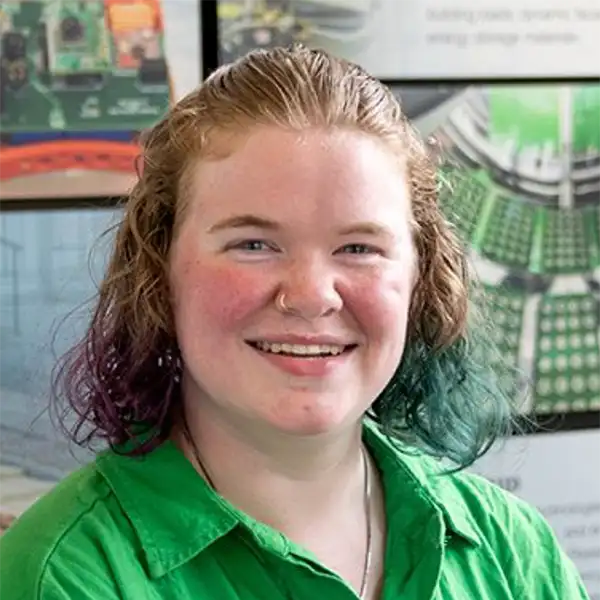
Rebekah Shields participated in the JUMP into STEM internship program during the summer of 2024. Throughout this experience, Shields collaborated with the Thermal Energy Storage group at Oak Ridge National Laboratory (ORNL), where she focused on thermally characterizing a range of materials using differential scanning calorimetry. Currently, Shields is a senior at Worcester Polytechnic Institute, pursuing a combined bachelor’s and master’s degree in materials and mechanical engineering. Shields has a strong emphasis on fluid dynamics and heat transfer in her studies and is actively part of a team that is developing a thermal energy storage system for their senior capstone project. Looking ahead, Shields aims to further her career in the thermal energy storage sector, contributing to the development of environmentally sustainable heating and cooling solutions.
Nominated by Tugba Turnaoglu, Ph.D., Oak Ridge National Laboratory
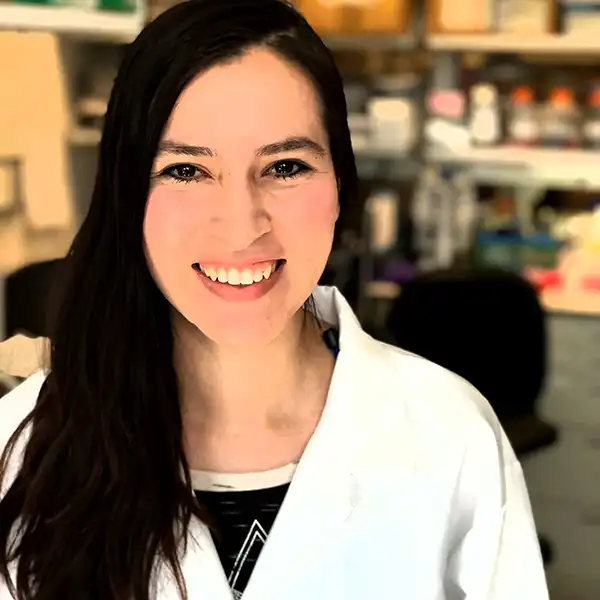
Susana Najera is an ORISE fellow in the Office of Therapeutic Products (OTP) under the Gene Therapy and Immunogenicity Branch at the U.S. Food and Drug Administration (FDA). During her ORISE fellowship at the FDA, Najera has collaborated on three independent research projects aimed at developing safer and more efficacious therapies for patients. Najera’s research focuses on identifying immunogenic epitopes found on viral vectors and transgenes, developing novel biopotency assays for AAV, and characterizing 3D cultures for viral gene delivery. Najera holds a dual master's degree in science in regenerative medicine and stem cells and molecular targets and drug discovery from Johns Hopkins University. Susana serves as an active member of the Board of Directors at Mansfield Kaseman Health Clinic and Mooddai International Bank.
Nominated by Ronit Mazor, Ph.D., U.S. Food and Drug Administration
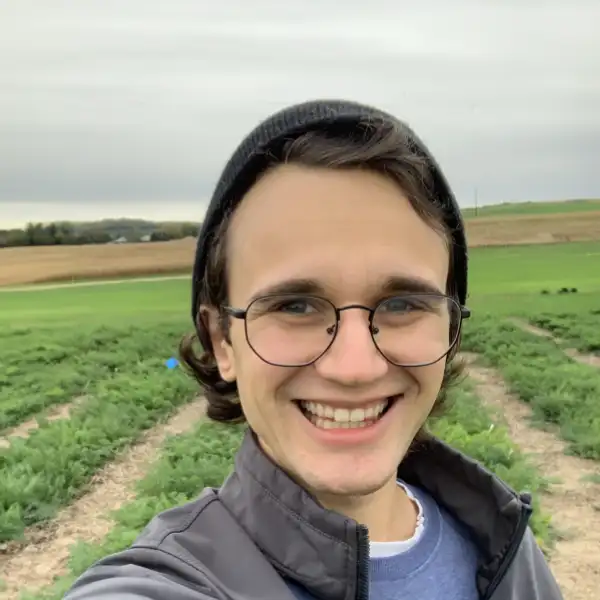
Keo Corak is currently a computational biologist with the U.S. Department of Agriculture’s Agricultural Research Service (USDA-ARS), working in the Genomics and Bioinformatics Research Unit after completing an ORISE postdoctoral fellowship in the same unit. At the USDA, Corak contributes to the modernization of sugarcane breeding through the integration of genomic, phenomic and big data analytics. Corak holds a Ph.D. in plant breeding and plant genetics and an M.S. in agroecology from the University of Wisconsin-Madison. Corak’s research focuses on quantitative genomics, high-throughput technologies and computational models to enhance breeding efficiency in commodity and specialty crops.
Nominated by Amanda Hulse-Kemp, Ph.D., U.S. Department of Agriculture
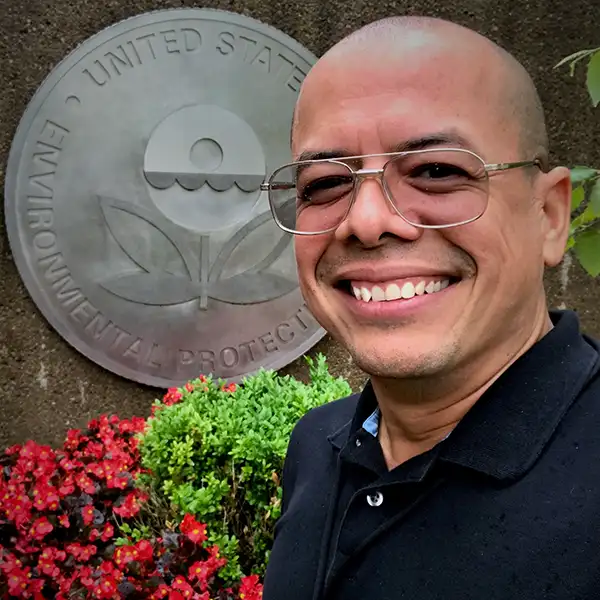
Gerardo J. Ruiz-Mercado, Ph.D. is a research chemical engineer with the Office of Research and Development at the U.S. Environmental Protection Agency (EPA) in Cincinnati, Ohio. Ruiz-Mercado leads projects on decision support tools, techniques, economics and planning for the sustainable management of end-of-life materials. Gerardo holds a Ph.D. from the University of Puerto Rico - Mayaguez and a B.S. from Universidad del Atlántico - Colombia. Ruiz-Mercado volunteers as an adjunct professor at the Universidad del Atlántico, journal assistant editor, and an executive member of the American Institute of Chemical Engineers. Ruiz-Mercado’s publications and presentations include over 75 peer-reviewed articles, book chapters, a book and more than 175 talks at technical conferences and meetings. Moreover, Ruiz-Mercado is a peer reviewer for 55 indexed journals and a mentor for Ph.D., MSc and B.S. students.
Nominated by former ORISE participant David Perez
2023 Winners
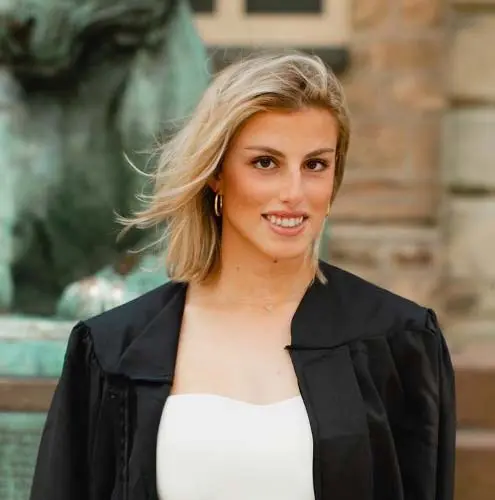
Annie Price is a researcher at the Air Force Research Laboratory, working within the high-speed systems division. Her research focus is on ramjet inlet design and analysis. She graduated from Princeton University in May of 2022, with a Bachelor of Science in Engineering degree.
Air Force Institute of Technology Program
U.S. Department of Defense
Jose A Camberos, Ph.D., mentor
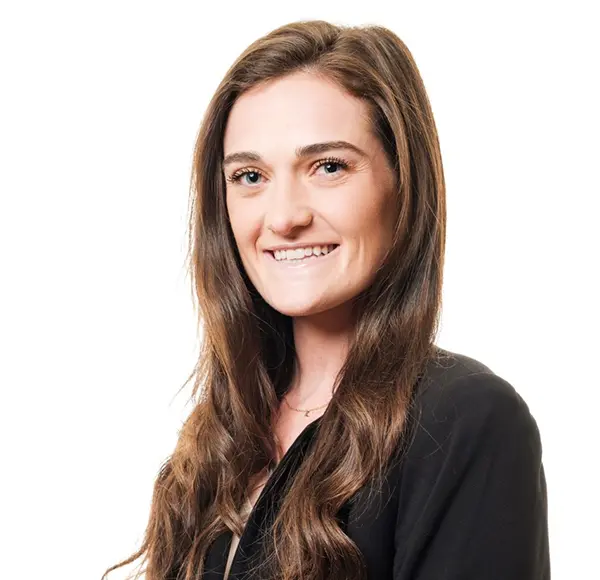
Reese Tierney is an epidemiologist in the Enteric Diseases Epidemiology Branch at the Centers for Disease Control and Prevention. During her tenure in CDC’s ORISE Research Participation Program, Reese assisted CDC scientists with several high-priority projects, including the development foodborne illness source attribution estimates, investigation of disparities in foodborne illness, and analysis of social and environmental factors associated with salmonellosis. She holds a Bachelor of Science in public health from Georgia Southern University and a Master of Public Health in epidemiology from Georgia State University.
National Center for Emerging and Zoonotic Infectious Diseases
Centers for Disease Control and Prevention
Dr. Erica Rose, mentor
From the ORISE Featurecast
In this conversation, hosts Michael Holtz and Matthew Underwood talk to Tierney about her award, her passion for community-based public health and so much more.
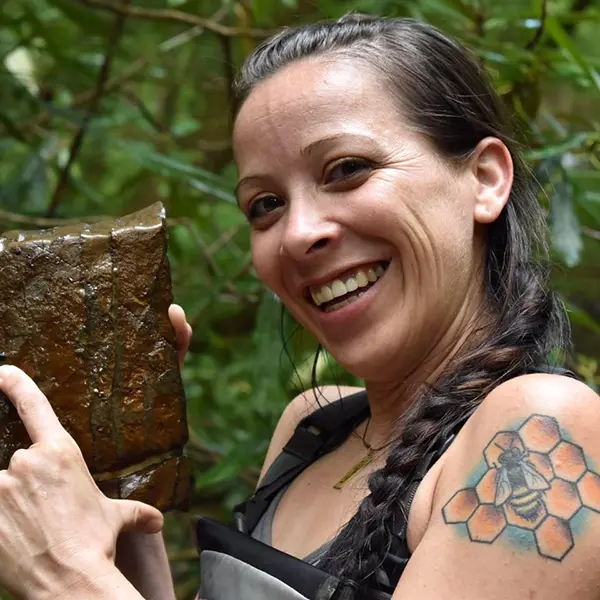
Jenny Paul is an ORISE Postdoctoral Fellow with the Environmental Protection Agency’s Gulf Ecosystem Measurement and Modeling Division in Gulf Breeze, Fla., and EPA’s Gulf of Mexico Division in Gulfport, Miss. She received her Ph.D. in zoology from the Center for Fisheries, Aquaculture, and Aquatic Sciences from Southern Illinois University. As an ecotoxicologist, her work is focused on understanding how environmental stressors and pollution affect aquatic ecosystems. At the EPA, Jenny is developing rapid assessment tools using marine invertebrates to better assist natural resource managers and monitoring programs in the northern Gulf of Mexico. These include techniques like sediment profile imaging (SPI) which takes pictures that are later scored for animal activity, and approaches using environmental DNA to evaluate the benthic community.
Gulf of Mexico Program Office
U.S. Environmental Protection Agency
Janet Nestlerode, Ph.D., mentor
2022 Winners
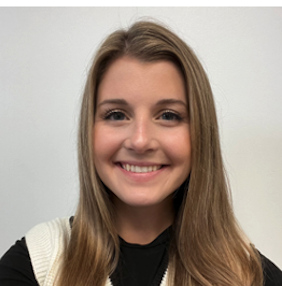
Brooke Vollmer is an ORISE fellow in the Research Branch at the National Personal Protective Technology Laboratory (NPPTL), which is a division within the National Institute for Occupational Safety and Health (NIOSH) located in Pittsburgh. Vollmer received her Bachelor of Science degree in biology from the University of Pittsburgh at Johnstown in Spring 2020. Vollmer has contributed to an abundance of research projects within her division and by representing NIOSH/NPPTL in research collaborations with outside organizations. She has focused her efforts on research that looks into understanding the factors that affect respirator performance, such as fit and filtration efficiency. This research helps to protect workers worldwide who rely on respirators to prevent occupational disease and illness.
From the ORISE Featurecast
In this episode of the ORISE Featurecast, host Michael Holtz talks to Vollmer about her role at NIOSH, how she got interested in a career in STEM, and so much more.
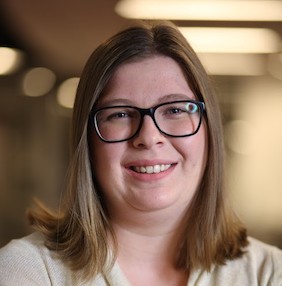
Geneva Gray is a doctoral candidate in Atmospheric Sciences at North Carolina State University and a current ORISE participant at the Environmental Protection Agency. She studies how extreme precipitation events change under future warming conditions using stakeholder-driven case studies and extreme value analysis. Gray holds two Bachelor of Science degrees in Meteorology and Environmental Sciences and a master’s degree in Atmospheric Science, where she studied quantitative methods on climate model ensemble selection. She is a former U.S. Geological Survey Global Change Fellow and Urban Resilience to Extremes Sustainability Research Network Fellow. Gray started her career in 2012 as an environmental meteorologist at the North Carolina State Climate Office where she learned how to build impact-driven research projects and how to communicate those result to the general public. Her career goal is to lead actionable climate science for a resilient future.
From the ORISE Featurecast
ORISE Featurecast host Michael Holtz talked with Gray about her award, her career, mentorship and what drove her interest in science.
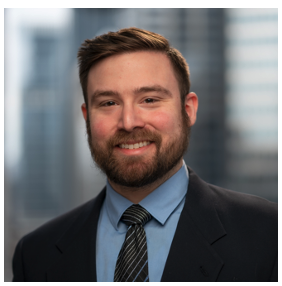
Ryan Corey is an Intelligence Community Postdoctoral Research Fellow working with Professor Andrew Singer in the Coordinated Science Laboratory at the University of Illinois Urbana-Champaign. He received his Bachelor of Science in Engineering degree from Princeton University and his master’s and doctoral degrees from the University of Illinois at Urbana-Champaign, all in electrical engineering. A hearing aid user since he was a teenager, Corey’s research focuses on signal processing strategies to help people hear better in noisy environments. In particular, he is developing systems that allow multiple sensors and audio devices to work together to improve performance in adverse environments.
From the ORISE Featurecast
In this conversation, Corey and host Michael Holtz discuss Corey's research, how he became interested in science, and what happens next in his career.

